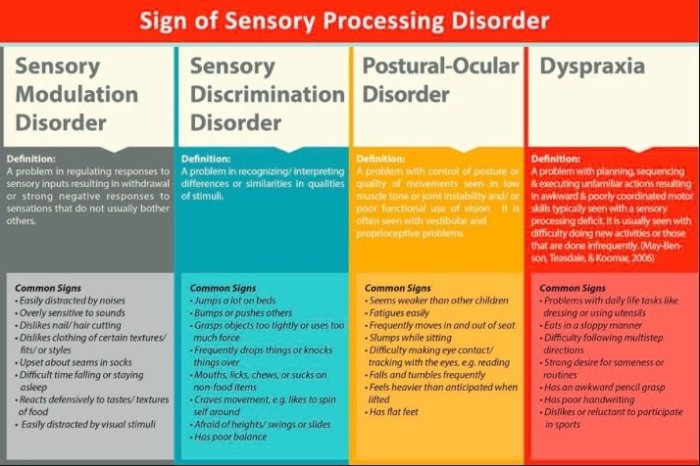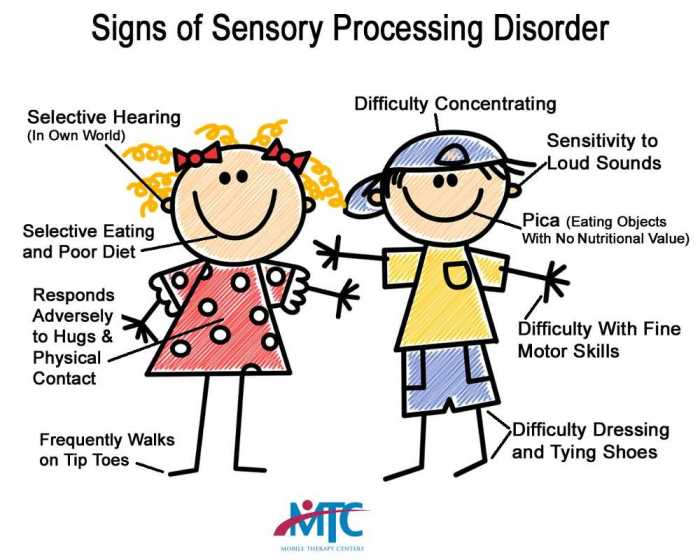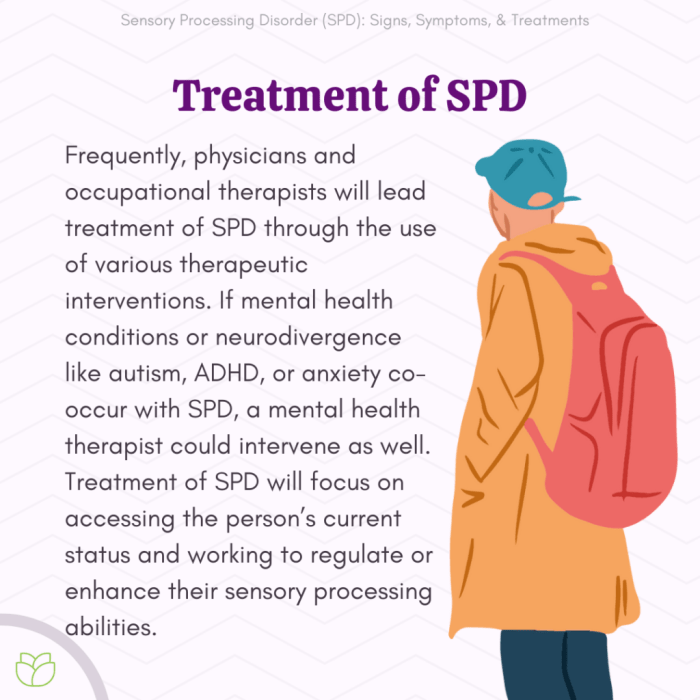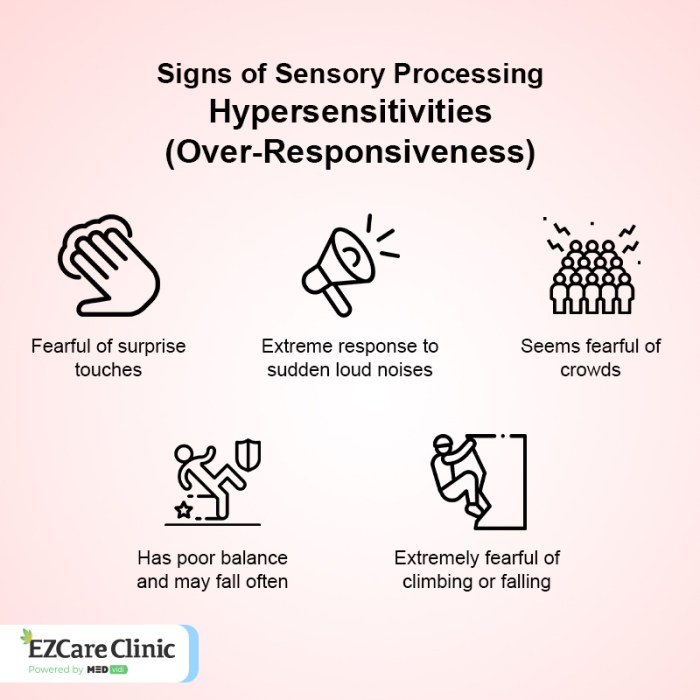Embark on a journey of self-discovery with our Sensory Processing Disorder in Adults Quiz. This comprehensive assessment unveils the nuances of SPD, empowering you to gain a deeper understanding of your sensory experiences and their impact on your daily life.
Delving into the complexities of SPD, we explore its common symptoms, challenges, and coping mechanisms. Through this interactive quiz, you will gain valuable insights into your unique sensory profile and discover strategies to navigate your sensory world with greater ease and confidence.
Overview of Sensory Processing Disorder (SPD) in Adults: Sensory Processing Disorder In Adults Quiz

Sensory Processing Disorder (SPD) is a neurodevelopmental condition that affects how the brain processes sensory information. In adults, SPD can manifest in various ways, impacting daily life and overall functioning.
Common symptoms include difficulties regulating responses to sensory stimuli, such as excessive sensitivity to light, sound, touch, or movement. This can lead to challenges in social situations, occupational environments, and everyday activities.
Assessment and Diagnosis of SPD in Adults
Assessing SPD in adults requires a comprehensive evaluation that considers an individual’s sensory experiences and their impact on daily life.
Healthcare professionals, such as occupational therapists or neuropsychologists, use standardized assessment tools and observations to gather information about sensory processing abilities.
Differential diagnosis is crucial to rule out other conditions that may present with similar symptoms, such as anxiety disorders or autism spectrum disorder.
Sensory Processing Strategies and Interventions
Managing sensory sensitivities in adults with SPD involves implementing strategies that promote sensory regulation.
- Sensory integration therapyfocuses on improving the brain’s ability to process and respond to sensory stimuli.
- Occupational therapyprovides practical strategies for managing sensory challenges in daily life, such as modifying environments and using adaptive equipment.
- Creating sensory-friendly environmentsinvolves reducing sensory overload and providing calming spaces.
Coping Mechanisms and Support for Adults with SPD, Sensory processing disorder in adults quiz
Adults with SPD can develop coping mechanisms to manage sensory challenges.
- Self-regulation techniquesinclude deep breathing, mindfulness, and grounding exercises.
- Sensory breaksprovide opportunities to step away from overwhelming sensory environments.
- Support groupsoffer a sense of community and shared experiences.
Self-advocacy and self-care are essential for individuals with SPD to communicate their needs and prioritize their well-being.
Sensory Processing Disorder and Co-Occurring Conditions
SPD is often accompanied by other conditions, such as:
- Mental health disorders(e.g., anxiety, depression)
- Neurodevelopmental disorders(e.g., autism spectrum disorder, ADHD)
- Chronic pain conditions(e.g., fibromyalgia)
Understanding the co-occurring conditions can help provide comprehensive treatment and support for adults with SPD.
FAQ Guide
What is the purpose of this quiz?
This quiz is designed to provide insights into the potential presence of Sensory Processing Disorder (SPD) in adults. It assesses common symptoms, challenges, and coping mechanisms associated with SPD.
How accurate is this quiz?
While this quiz can provide valuable insights, it is not a substitute for a professional diagnosis. If you suspect you may have SPD, it is recommended to consult with a healthcare professional for a comprehensive evaluation.
What should I do with my results?
Your results can serve as a starting point for further exploration and discussion with your healthcare provider or other trusted individuals. They can help you understand your sensory experiences and develop personalized strategies to manage any challenges you may face.


